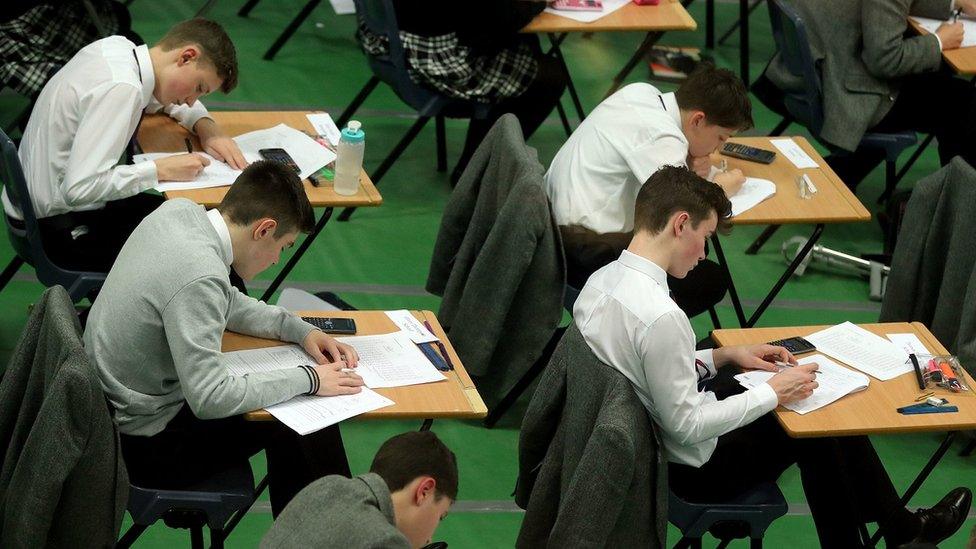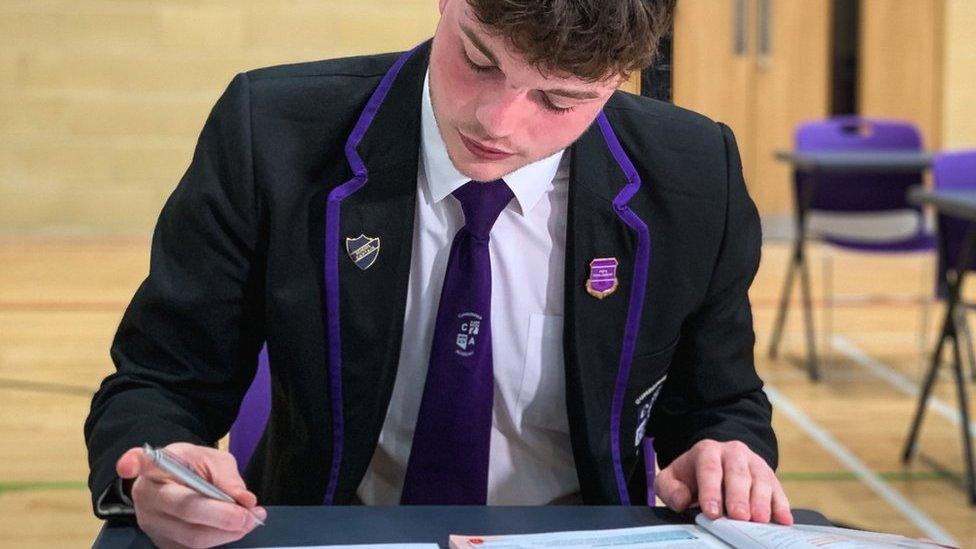SQA exam staff vote for strike action in pay dispute
- Published

Unite said industrial action could affect the SQA's ability to provide exam results next year
Staff at Scotland's exam body have voted for strike action following an "unacceptable" two-year pay offer.
The union said members "overwhelmingly" voted for industrial action that could prevent students getting exam results.
Unite said most Scottish Qualifications Authority (SQA) staff were offered below inflation rises of up to 5.75% in 2023 and 3.15% in 2024.
The SQA said the pay deal on offer was "fair and reasonable" and the maximum amount affordable.
Hundreds of Unite members backed strike action - for the second consecutive year - by 72% on an 80% turnout.
They include administrators, managers, processors and researchers.
Last year, Unite workers ended their action when they accepted a pay deal worth between 5% and 8.9%, depending on salary.
Alison Maclean, Unite industrial officer, said they would now discuss potential dates for industrial action "which could affect the SQA's ability to provide exam results next year".
She said Unite's concerns about education reform and the removal of the exam body had also not been addressed by the SQA.
"The nation's new qualifications body is set to be up and running in 2025," she added. "Yet, we have been given no clarity on how this organisation will operate.
"It simply isn't good enough, which is why the Scottish government and SQA management repeatedly fail our members' confidence test."
The Scottish government previously announced that Scotland's education and exams agencies will be scrapped and replaced by the summer of 2024 after another report said there was too much focus on exams in schools.
The overhaul will include the Scottish Qualifications Authority, Education Scotland and a separate school inspection agency.
Three new education bodies will be created - a qualifications body, a national agency for Scottish education, and an independent inspection body.
The SQA said the pay offer was the maximum amount that was affordable and permitted by the Scottish government's pay strategy.
A spokesperson said: "It represents a total average increase of 7.43% in year one and a further total average rise of 5.19% in year two, taking into account pay progression.
"Industrial action is not in the interests of learners. We are committed to minimising any disruption and have contingency plans in place to protect delivery of vital services.
"The majority of SQA colleagues are not members of Unite. SQA employs around 1,100 colleagues."


Yet again there is the prospect of industrial action about public sector pay.
Teachers and many council staff have been called out on strike over the past year.
Meanwhile, staff at Scottish Water began a programme of industrial action with a strike over the weekend. However, action in the NHS in Scotland was narrowly avoided recently.
It seems that public sector pay disputes are an almost inevitable consequence of high inflation.
There are two reasons for this.
When wages are paid out of public money there is, ultimately, a finite pot of cash. More for pay may mean less for something else.
But even where an organisation gets some of its money from other sources - maybe commercial income or cash from customers - employers and politicians are mindful of setting a precedent for the rest of the public sector.
A more generous headline rise would normally need to be justified by particular circumstances - for example, a particular group of workers may be underpaid for the work they do or earn less than people in comparable roles elsewhere.
The Scottish government always stresses that pay is a matter for employers and unions. It does not get directly involved in pay negotiations although it has sometimes made the money available to fund improved pay offers - either to settle strikes or to try to avoid them.
Related topics
- Published16 June 2023

- Published23 September 2022
